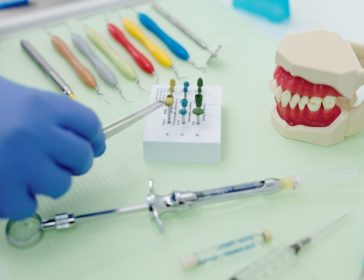
Health
- HONG KONG
Managing Your Child’s Epilepsy In Hong Kong: Pediatric Neurologists & Where To Get Support
Resources & The Best Pediatric Neurologists In Hong Kong

Receiving a diagnosis of epilepsy for your child can be an overwhelming and stressful experience. However, you don’t have to navigate this new reality alone. In Hong Kong, support and specialized care for children with epilepsy can be sparse, but this comprehensive guide aims to provide you with the key information and resources you need.
The impact of epilepsy on children can vary greatly. For some, it may be a temporary issue that is easily managed with medication and outgrown after a few years. For others, epilepsy may present a lifelong challenge that affects many aspects of their health and daily life. Regardless of the individual circumstances, early recognition and appropriate treatment are crucial for achieving the best possible outcomes for children with epilepsy. Prompt diagnosis and the right care plan can make a significant difference in minimizing seizure activity and supporting healthy childhood development.
This guide outlines the essential information and services you need to know about managing your child’s epilepsy in Hong Kong. From understanding the medical basics to practical tips from parents who have been through it here, as well as the contact details of the best pediatric neurologists in the city, we’ve compiled everything you need to empower your child and family during this transition. With the right knowledge and care team in place, children with epilepsy can lead full, happy, and healthy lives. Let this be your roadmap for giving your child the best possible start.
-

What Is Epilepsy?
One Of The Most Common Neurological DisordersEpilepsy is the fourth most common neurological condition worldwide. This disorder causes recurring seizures triggered by sudden, excessive electrical activity in the brain. If you or a loved one has received an epilepsy diagnosis, this guide can help you understand the basics and take positive steps forward.
What is Epilepsy?
Epilepsy is a neurological disorder characterized by recurrent, unprovoked seizures. A doctor may diagnose someone with epilepsy if they have experienced two or more unprovoked seizures, or one unprovoked seizure with a high risk of more to come. It's important to note that not all seizures are caused by epilepsy - they can also result from brain injuries, genetic factors, or unknown origins. The term "epilepsy" simply refers to seizure disorders, without specifying the underlying cause or seizure severity. -

How Is Epilepsy Diagnosed?
EEGs, MRIs, & MoreRecognizing a seizure and identifying the specific type or epilepsy syndrome can be challenging. Even if it's unclear whether a seizure has occurred, it's important to see a doctor if you or others suspect periods of unresponsiveness or unusual behavior in your child.
Your doctor will work to determine if a seizure has taken place and identify any underlying causes. If another medical condition, such as diabetes, is the root cause of the seizure, you'll need treatment for that condition. If your doctor suspects epilepsy, they'll likely order various tests and prescribe medication to prevent future seizures.
Gather Your Medical History
When you visit your primary care physician or neurologist, they'll ask detailed questions about your child's health and the events leading up to, during, and after the suspected seizure. Although it's counter-intuitive, and after you've ascertained that your child is safe and lying in a safe position, get your phone out and start filming. Showing your doctor a video of the seizure can greatly help.Undergo a Neurological Exam
If your doctor believes your child may have experienced seizures, they'll likely refer you to a neurologist - a specialist in the brain and nervous system. The neurologist will conduct a comprehensive neurological examination to assess the functioning of their brain and other neural pathways.Get an EEG
An electroencephalogram (EEG) is a painless, safe test that looks for abnormal electrical patterns in the brain associated with seizures. However, these patterns can occur with many conditions, not just epilepsy.Receive Brain Imaging
Brain scans like CT, CAT, or MRI can detect structural changes in the brain that may contribute to seizures, such as a tumor or bleeding. These imaging tests can also reveal developmental differences that could lead to epilepsy.Build Your Care Team
If you receive an epilepsy diagnosis, assembling the right healthcare team is crucial. You may work with epilepsy specialists, psychiatrists, psychologists, and other providers depending on your treatment plan. -

Treatments For Epilepsy
Medication & Alternative TherapiesAt this moment, and unfortunately, there is no cure for epilepsy. However, the symptoms or seizures can somewhat be managed with the appropriate treatment.
Medication
Medication is the primary treatment for most people living with epilepsy. There are many different anti-seizure drugs available, and finding the right medication or combination of medications can successfully control seizures for around 70% of individuals with the condition. Any medication does come with side effects, and it's important that you understand these prior to starting your child's course of treatment. In some cases, it might take time and some trial and error to identify the most effective anti-seizure medication for your child, so it is important to be patient in this case. Most doctors will want to achieve a 0 seizure standard.
Dietary Therapies for Epilepsy
In addition to medication, certain specialized diets can also be an effective way to help manage seizures for some individuals with epilepsy. The most common dietary approaches include:
- Ketogenic Diet: The ketogenic diet is a high-fat, adequate-protein, low-carbohydrate eating plan that puts the body into a metabolic state called ketosis. This shift in metabolism has been shown to have anti-seizure effects for some people with epilepsy.
- Modified Atkins Diet: Similar to the ketogenic diet, the modified Atkins diet also focuses on high-fat, low-carb foods to induce ketosis and reduce seizure activity.
- Low-Glycemic Diet: This diet emphasizes foods that have a low glycemic index, meaning they don't cause rapid spikes in blood sugar levels. Maintaining stable blood sugar can be beneficial for seizure control.
- Medium-Chain Triglyceride (MCT) Diet: The MCT diet involves consuming a type of fat that is more easily converted into ketones than long-chain triglycerides. This can mimic the metabolic effects of the ketogenic diet.
-

Practical Tips for Families Managing Childhood Epilepsy
Living With A Child With EpilepsyNow that you've established a treatment plan with your child's healthcare team, it's important to prepare for various scenarios and equip yourself with the knowledge and resources to manage their epilepsy effectively. Here are some valuable insights and advice from parents who have been through this journey:
Keep a Seizure Diary
Maintain a log of your child's seizures, recording details like the date, time, location, what was happening before the onset, and the duration of the episode. This information can be invaluable for their doctors in monitoring the condition and adjusting the treatment plan as needed.During a Seizure
Remain calm. Gently lay your child on their side in a safe, comfortable position, ensuring there is nothing that could obstruct their breathing. Use your phone to record the seizure, as this footage may help provide useful diagnostic clues.Establish a Daily Routine
Consistency and structure can be very helpful for children with epilepsy. Maintain a predictable daily routine for meals, sleep, medication, and activities to provide a sense of stability.Advocate for Your Child
Be an active voice in your child's care. Attend all medical appointments, ask questions (and keep a note of questions you may have along the way and beforehand), and work closely with the healthcare team to ensure their needs are being met. Pertinent questions to ask are: Should you call an ambulance when a seizure occurs? Should you carry or have some rescue medication (diazepam) at home if and when a seizure occurs?Get First Aid Training
Consider enrolling in a first aid course, either on your own or with your child's caregiver. Being prepared with the proper skills to manage seizures can give you the confidence to respond effectively.Create an Emergency Plan
Compile a printed document with your contact information, your child's doctor's number, and the steps to take during a seizure. Keep this readily available for any caregivers or school personnel who may need to reference it. Keep rescue medication accessible and make sure caregivers know how to administer it.Communicate with Your Child's School
Inform the school about your child's epilepsy, their medication, and the protocol to follow if a seizure occurs on campus. Work collaboratively to ensure a safe, supportive environment for your child.Monitor High-Risk Activities
Once seizures are well-controlled, your child can typically participate in most activities. However, for high-risk situations like swimming, ensure there is always a capable adult present to provide supervision.Prioritize Your Mental Health
Caring for a child with epilepsy can be emotionally challenging. Don't hesitate to seek support from mental health professionals to help you navigate the anxieties and uncertainties.Knowledge is Power
Familiarize yourself with reliable resources like the Epilepsy Foundation website to deepen your understanding of the condition and feel empowered to make informed decisions about your child's care.Encourage Independence
As your child grows, empower them to take an active role in managing their own condition. Teach them about their medication, seizure triggers, and self-care strategies.Foster Healthy Habits
Promote good sleep, balanced nutrition, and regular exercise to help your child's overall health and potentially reduce seizure frequency.By being proactive, prepared, and surrounded by a supportive network, you can help your child with epilepsy thrive and live a full, enriching life.
-

Pediatric Neurologists In Hong Kong
When dealing with a child's neurological condition, it is crucial to seek the expertise of a specialized pediatric neurologist, rather than relying solely on a general pediatrician. These highly trained specialists possess the specialized knowledge and experience necessary to effectively manage and treat a wide range of neurological issues in children. We have compiled a list of the top pediatric neurologists in Hong Kong to help you find the right care for your child.
-
Dr Ada Yung (Yung Wing Yan)
The Authority In Pediatric Neurology In Hong KongDr. Ada Yung is widely regarded as the preeminent authority in pediatric neurology within Hong Kong, having served on numerous epilepsy-focused boards and committees that showcase her extensive expertise in the field; though her direct approach may at times seem stern, those familiar with Dr. Yung recognize that her tough demeanor is rooted in an unwavering dedication to providing the best possible care for her young patients. Remember to bring cash as they don't accept cards.
Dr Ada Yung, Room 1707, 17/F, Hong Kong Pacific Center, 28 Hankow Road, Tsim Sha Tsui, Kowloon, +852 2369 8833
-
Dr Theresa Wong (Yee Ling)
Affiliated To A Number Of Hospitals In Hong KongDr Theresa Wong provides neurological pediatric consultations from her clinic in Central. She gained her medical qualifications from the UK and is also affiliated with a number of hospitals like Canossa, Sanatorium, Matilda and Adventist - useful in case of emergencies.
Dr. Theresa Wong, Room 901, Manning House, 48 Queen's Road Central, Hong Kong, +852 2525 5755
-

Dr Tim Liu
Honorary Clinical Associate Professor In Pediatrics & Adolescent Medicine At HKUDr. Liu, an honorary consultant in pediatric neurology at Gleneagles Hospital on Thursdays who also maintains his private practice in Central, received his medical qualifications from universities in Ireland and currently serves as an Honorary Clinical Associate Professor in Paediatrics and Adolescent Medicine at the University of Hong Kong.
Dr. Tim Liu, Room 2909A, 29/F, Bank of America Tower, 12 Harcourt Road, Central, Hong Kong, +852 2243 0000, childassessment@gmail.com, https://www.hkdpc.com/
Want More?
Little Steps Asia knows what families need.
Sign up for our email newsletters to get the most out of Asia!
Hong Kong’s Best Events For Summer 2024
Best Summer Attractions In Macao 2024
-
Hong Kong
LEGO SERIOUS PLAY® Weekend Brunches For Families In Hong Kong
Brunch With LEGO® In Hong Kong2024 Jul 01 - 2024 Aug 18 -
Hong Kong
SummerFest@Central 2024: Free Admission To Giant AI-Designed Wonders & Exciting Events
Back-To-Back Arts And Cultural Events2024 Jul 05 - 2024 Aug 11 -
Hong Kong
Hop Aboard The Iconic Clipper Stad Amsterdam: In Hong Kong For 4 Days Only
Register Before June 25!2024 Jun 28 - 2024 Jul 02 -
Hong Kong
Top Summer Events & Activities For Families In Hong Kong 2024
Top Family Events And Things To Do With Kids This Summer! -
Hong Kong
Best American Restaurants In Hong Kong To Celebrate 4th Of July 2024
Best American Restaurants In Hong Kong2024 Jul 04 - 2024 Jul 04 -
Hong Kong
FringeYouth Festival 2024: A Celebration Of Creativity & Fun For All Ages This Summer!
Music, Theater, Dance, Storytelling & More For Babies, Kids & Grown-Ups Too!2024 Jul 16 - 2024 Jul 21 -
Hong Kong
Ultimate Summer Events & Highlights At Hong Kong Disneyland 2024
Spend A Day At The Most Magical Place On Earth!2024 Jun 22 - 2024 Sep 01 -
Hong Kong
Enjoy A Summer Party Like No Other At Water World Ocean Park!
Water Battles, Mini-Games & Daily Shows & Performances2024 Jul 06 - 2024 Sep 01 -
Hong Kong
Experience The Ultimate Summer At SKECHERS Inflatable Water Park Hong Kong
Huge Inflatable Water Park, Mermaid Experiences & Foam Parties2024 Jun 29 - 2024 Oct 28 -
Hong Kong
Celebrate Hong Kong Day On July 1 With These Exclusive Offers
Discounts On Public Transport, Exciting Dining Offers, & More2024 Jul 01 - 2024 Jul 01
SIGN UP
Hong Kong Tips, Deals + Events.
Got kids? Little Steps Asia gives you the scoop on all the things to do and see with babies, toddlers, and kids in Hong Kong, Singapore, Kuala Lumpur, Bali, Jakarta, Macau, and beyond. From family-friendly hotels, kids and baby shops, the best schools and after school activities, pregnancy tips and meet-ups and more – we have you sorted.
Sign up to receive the free Little Steps email newsletter packed with news, offers, and hidden treasures for Hong Kong families.
© 2024 Little Steps Asia. All rights reserved.


















